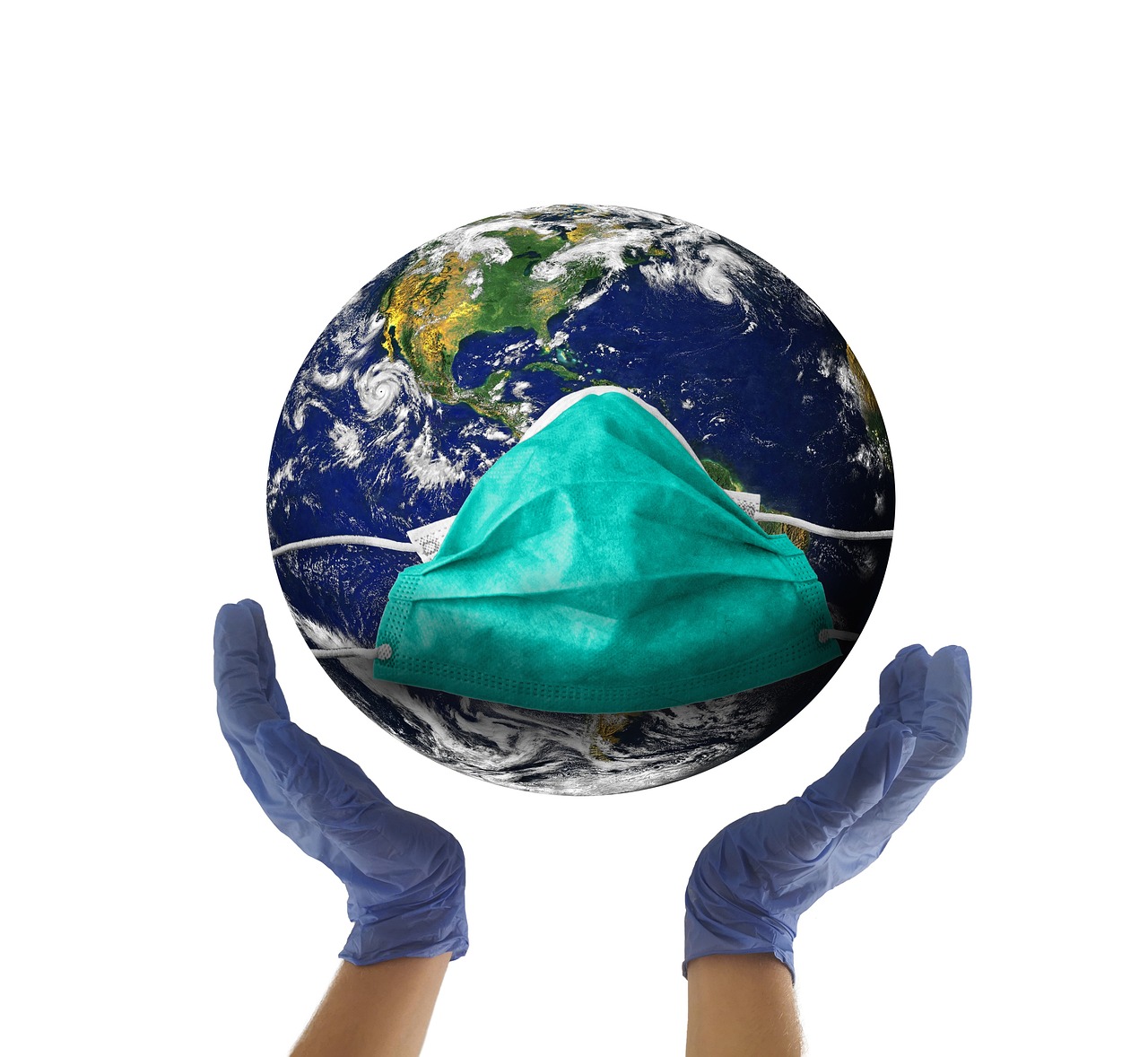Mr Donold Trump has stopped funding the WHO (World Health Organisation) and other nations are getting anxious and have not found a solution. I have been closly monitering their work after I created Dr Maya colour coded symptoms to help prevent pandemics, and offer medical advice and managemnt for individuals in 2016. Unfortunatly, people with deep rooted belief do not trust a "Simple tool that is FREE to download and use.
In my article "Superbug Pandemic and how to prevent Them, published in American Interest in 2017, and These apps track infection, isolate patients, reduce antibiotics published in Times of India was ignored.
In 2015, I wrote and sent a copy of my book "Maya Bring Tears of Happines" that explained the problems in present "Doctor Centred Healthcare", escilating cost, and encouraging patients to consult and depend on doctors to diagnose and treat illness and infection. My intuition was making me spend sleepless nights because of the fear healthcare workers including me getting infected and die motivated me to find a solution to avert the crisis, and so created Maya (Medical Advice You Access)
The World Health Organisation
The World Health Organization (WHO) is a specialised agency of the United Nations responsible for international public health. While it is pivotal in combating health crises worldwide, the organisation has not been sucessful. The information about curruption, mismanagement, abusing power, and wrong doings, and silencing the whistlebower has resulted in loss of trust in the organisation.
Misconduct allegations. This article delves into notable corruption, control issues, and other wrongdoings within the WHO, providing examples and references to shed light on these challenges.
Funding currupt politicians, NGOs, and Individuals has not allowed nations to help make life of poor people better, and offer better healthcare service. They are blaming lack of doctors, poor infrastructures and expense of drugs and treatment.
1. Allegations of Corruption and Mismanagement
• Akjemal Magtymova Case: In 2022, Akjemal Magtymova, the head of the WHO's Syria office, was placed on leave pending an investigation into allegations of corruption, fraud, and abuse. Accusations included misappropriating millions of dollars in agency funds, hiring relatives of Syrian government officials previously accused of human rights abuses, and engaging in aggressive behaviour towards WHO staff.
2. Sexual Misconduct Allegations
• Peter Ben Embarek Incident: Peter Ben Embarek, a Danish food scientist and former program manager at WHO, was dismissed in 2023 following allegations of sexual misconduct dating back to 2015 and 2017. Ben Embarek denied the allegations and challenged the WHO's decision, stating that an incident in 2017 was amicably settled.
• Termination of Staff for Sexual Misconduct: Between late 2022 and early 2023, WHO terminated the contracts of several staff members and consultants due to sexual misconduct allegations. Four individuals faced termination in the last quarter of 2022 alone, with three more between January and March 2023. These actions followed a significant overhaul of WHO's internal systems after revelations of widespread sexual exploitation during the 2018-2020 Ebola outbreak.
3. Financial Misconduct
• Investigations and Disciplinary Measures: WHO's Office of Internal Oversight Services (IOS) actively investigates allegations of financial misconduct. As of March 2025, there were 214 open cases of financial misconduct. In the previous month, 12 new cases were opened, six were closed, and 12 disciplinary measures were implemented.
4. Efforts to Address Misconduct
• Transparency and Accountability: WHO has established dashboards to monitor and report cases of sexual misconduct, abusive conduct, and financial misconduct. These monthly dashboards reflect the organisation's ongoing efforts to address and mitigate such issues.
• Policy Reforms: WHO has undertaken significant investigative and prevention policy reforms in response to past scandals. This includes expanding its investigations team and enhancing victim support mechanisms to foster a culture of integrity and accountability within the organisation.
Conclusion
While the WHO's mission is to promote global health, these instances of misconduct highlight the challenges large international organisations face in maintaining ethical standards. The organisation's recent efforts to increase transparency and enforce stricter disciplinary actions demonstrate a commitment to addressing and preventing future misconduct. Continued vigilance and reform are essential to uphold the integrity and effectiveness of the WHO in its critical role on the world stage.
The World Health Organization (WHO) coordinates global health responses. However, during the initial outbreak of COVID-19 in China, the WHO faced criticism for its perceived delays and shortcomings in addressing the emerging pandemic. This article examines the WHO's early actions, identifies areas where its response could have been improved, and explores how strategies proposed in prior articles—such as "Superbug Pandemic and How to Prevent Them" published in The American Interest in January 2017 and "These apps track infection, isolate patients, reduce antibiotics" published in The Times of India—might have bolstered the global response to the pandemic, prevented ripping apart families, bankruptin business and nations.
Dr Maya GPT is the best Solution and Alternative to WHO

